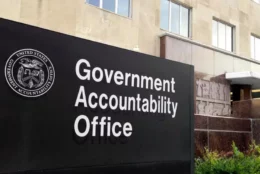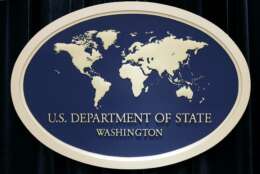Cybersecurity
-
Cyber adversaries continue to hone their craft. That’s why Google Cloud cyber leader encourages agencies to adapt based on the latest supply chain breaches.
September 26, 2024 -
Rep. Nancy Mace (R-S.C.), chairwoman of the Oversight and Accountability Subcommittee on Cybersecurity, IT and Innovation, is asking for a briefing by Oct. 3.
September 26, 2024 -
House Homeland Security Committee Chairman Mark Green's cyber workforce bill adds to a growing push to embrace skills-based hiring and training for cyber jobs.
September 25, 2024 -
As agencies must juggle multiple cybersecurity directives and workforce shortages, CrowdStrike and Zscaler experts share strategies for pushing forward.
September 25, 2024 -
“At the end of the day, our most valuable asset in the government is our data,” GAO Chief Information Officer Beth Killoran said.
September 25, 2024 -
Cyberthreats are increasing across all parts of the technology stack, and experts from Okta and Palo Alto Networks discuss tactics for continuous monitoring.
September 25, 2024 -
"The draft guidelines add programmatic fraud requirements for credential service providers," attorney Sean Griffin said.
September 24, 2024 -
As the Commerce Department makes major investments in quantum and other technologies, supply chain tools are helping to drive decision-making.
September 23, 2024 -
One significant barrier to effective IT management within federal agencies is organizational silos.
September 23, 2024 -
"These are interesting cases in that they are spotlighting as we see the Civil Cyber Fraud Initiative cases coming up from under seal," said Julie Bracker.
September 23, 2024 -
The Federal Acquisition Security Council would get a big update under legislation that's on the move in the House.
September 20, 2024 -
The Cyber Solarium has an 80% success rate, but its remaining suggestions face an uncertain outlook in Congress amid rising threats to critical infrastructure.
September 19, 2024 -
Congress has until the end of the month to reauthorize Overseas Comparability Pay.
September 19, 2024 -
DIA is taking advantage of targeted local market supplement that was approved by the Pentagon last year for cyber, IT and STEM positions.
September 18, 2024 -
Federal employees can hear from zero trust experts across the public sector at GPSEC, and learn how to transform their cybersecurity practices.
September 18, 2024















